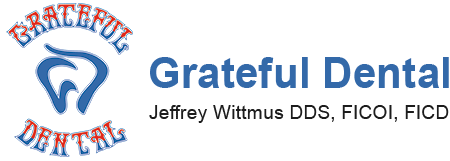
Dry mouth, also called xerostomia, is a symptom in which there is an inadequate flow of saliva. Saliva is the buffering system that keeps the mouth at a healthy pH, maintains the healthy flora of the mouth, lubricates oral tissues, cleanses the mouth, and begins the digestive process as foods are chewed. For some people, untreated dry mouth can cause serious health problems. Oral yeast infections, burning sensations, rampant tooth decay, bad breath, and other oral health problems can result from dry mouth. Chronic dry mouth can make it difficult to swallow.
The most common cause of dry mouth are prescribed and over-the-counter medications, includi
ng decongestants, antihistamines, painkillers, diuretics, antihypertensives, and antidepressants. If you think that your dry mouth is an adverse side effect to one of your medications, talk to your dentist or physician; in some cases, a different prescription may provide relief.
Other causes of dry mouth include radiation treatment for head and neck cancers, disease of the salivary gland, stress, and autoimmune diseases such as diabetes and Sjogren’s syndrome.
Some things that can be done to help relieve dry mouth include increasing fluid intake or switching to glycerin based rinses or alcohol-free oral rinses. Chewing sugar-free gum or eating sugar-free candy to stimulate saliva flow, and restricting intake of caffeine, carbonated beverages, and alcohol can also help alleviate dry mouth.
Remember, dry mouth is a symptom, not a specific disorder. If you are suffering from dry mouth, tell your dentist. Bring a list of medications and mention any other information about your health that may help identify what the cause of your dry mouth may be. This will allow your dentist to provide advice specific to your situation or recommend the use of the many products that may safeguard your dental health using your best defense against bacteria: your saliva!


